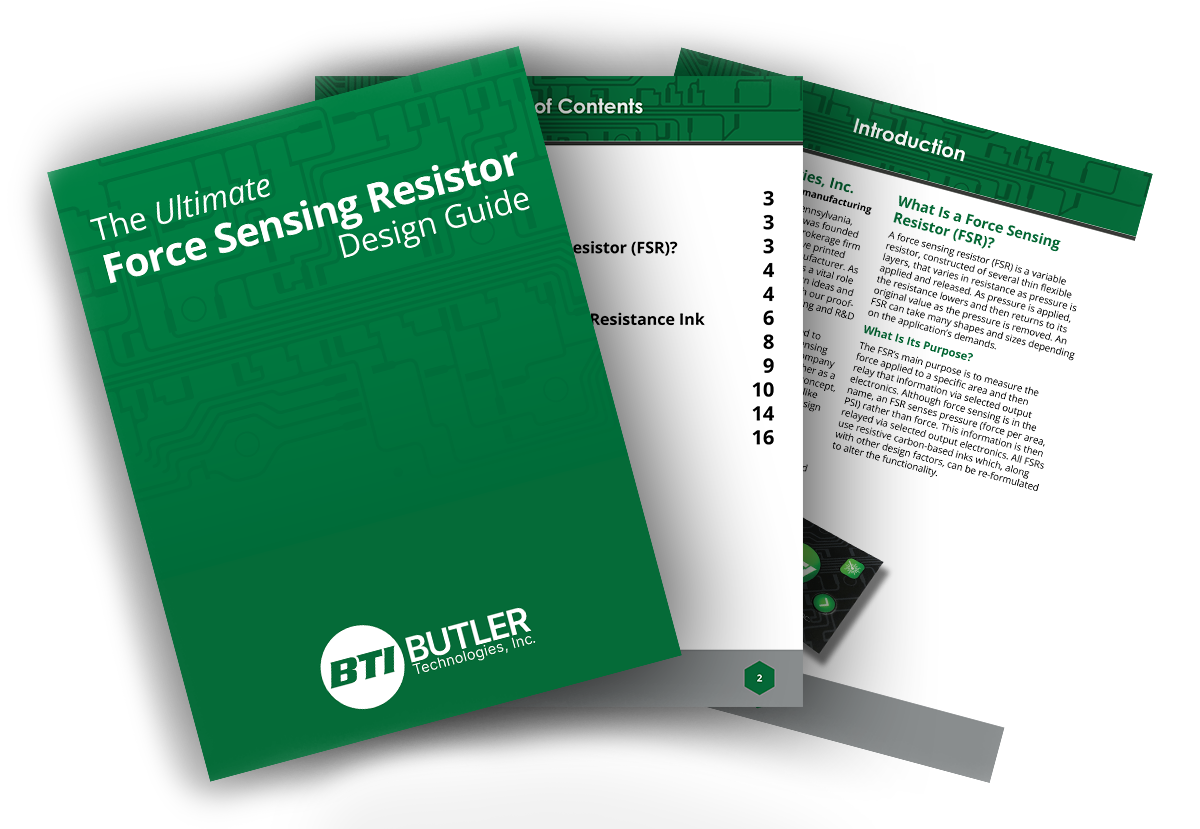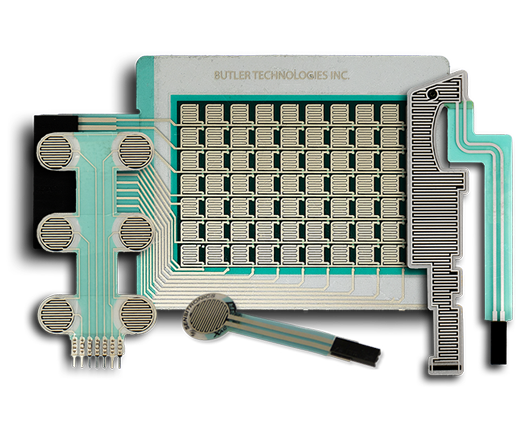Force Sensing Resistors for All Industries
A force sensing resistor (FSR) is a variable resistor, constructed of several thin flexible layers, that vary in resistance as pressure is applied and released. As pressure is applied, the resistance lowers and then returns to its original value as the pressure is removed. An FSR’s main purpose is to measure the force applied to a specific area and then relay that information via selected output electronics.
All FSRs use high-resistance, carbon-based inks which, along with other design factors, can be re-formulated to alter the functionality. FSRs are available in several options including single-zone, discrete array, and matrix array constructions. FSRs are commonly used in Industrial Automation, Healthcare, Transportation, and Wearable applications.

Force sensing resistors can sense forces as large as a human body or as light as a vial of medicine.




Capable of detecting a wider range of forces with a more linear output.

More receptive to lighter forces, but can saturate more quickly.
Check out our design guide. A powerful tool for beginners and seasoned veterans.

One sensing location with 2 leads (traces).
Multiple sensing locations connected to rows and columns. (ThruMode only)
Multiple sensing locations each with its own trace and single or multiple
common traces. (ShuntMode only)
Sense force on a single axis, along with the force applied (a force sensing slider).

With all the different customization options and use cases, it might seem overwhelming.
Contact our expert team today and take the pressure off yourself.